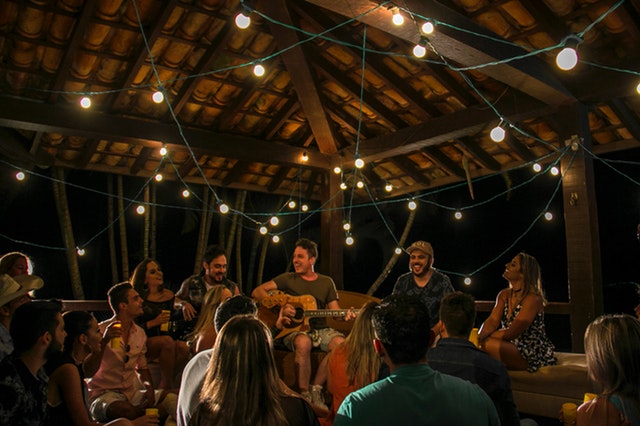
Socio-gathering: come, meet, eat and greet!
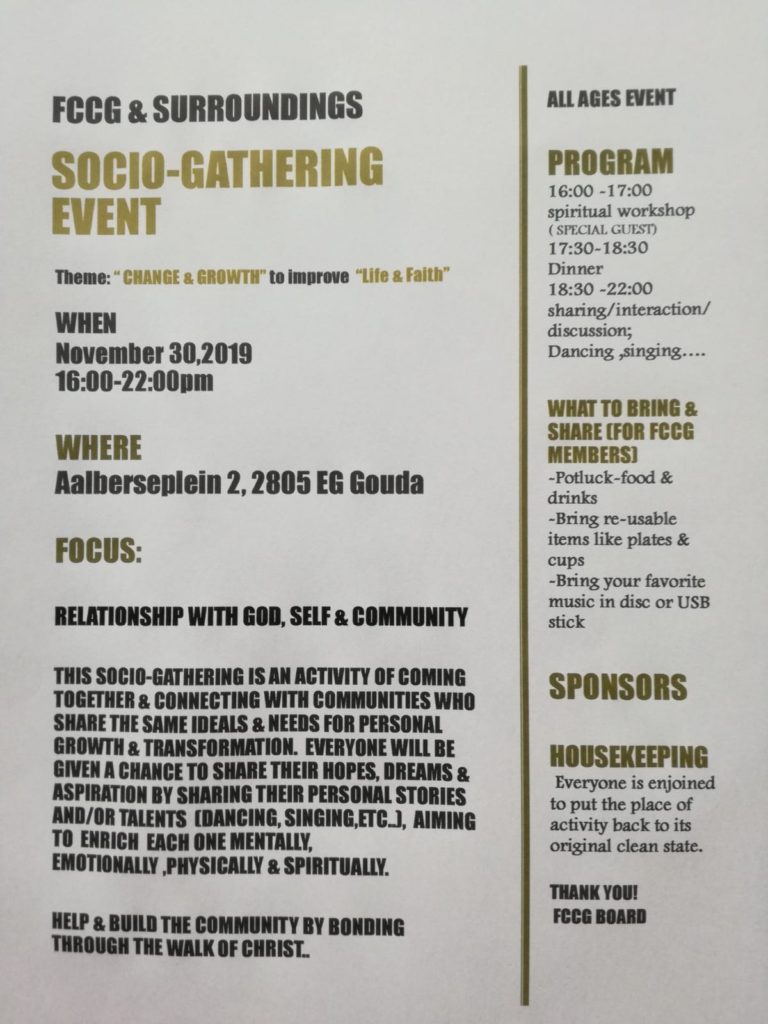
Featured image credit: Ronê Ferreira from Pexels


Featured image credit: Ronê Ferreira from Pexels
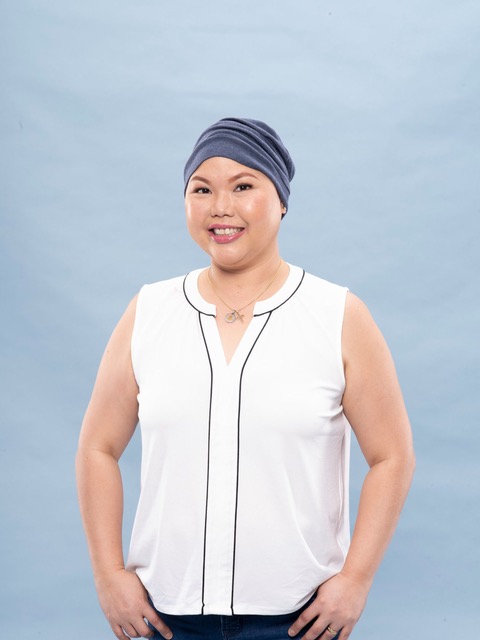
A living testimony by Kathy Grimme
Dear Brothers & Sisters in Christ,
I have no other explanation to offer as to why am still here; except, that I’m surviving cancer by God’s grace. In 2015, I was diagnosed with a rare and particularly aggressive type of cancer called Epithelioid Angiosarcoma. The initial biopsy came from a bump that was sitting on my leg for approximately eight years when I first noticed it. It took three months to diagnose because none of the pathology databases in the Philippines carried the profile for this type of cancer. In fact, the largest case study we’ve found so far had 18 cases, with a handful more individual cases here and there.
I read in a medical journal that 56% of the patients with my type of cancer die in three years. I’m on my fourth year. Thank, God. My doctors like to tell me that I’ve gone through some of the toughest chemo regimens they can give for my kind of cancer. Most people stop after a few rounds. I can tell you that strength and determination sometimes aren’t enough when you feel beaten up and can’t even muster the courage to get off the couch for weeks. All you can say is, “Lord, I offer you my pain”. There’s faith that one day, things will get better.
I am not stronger or more resolved than the other patients I know. A good friend taught me a phrase that has helped me through all this: “Not I can, but He can.” By His grace, I survived a total of sixteen rounds of chemo in my life—eight in Manila and eight here.
We often ask, “Why me?” I’ve asked myself that question countless times in the last four years, and there has never been an answer. So I started asking myself “What is the purpose of my existence at this point?” I realized that, because my children are small, and we’re new immigrants, the purpose at this time is to build a community around them. Friends who can be like family (like all of you who have lent us much needed strength in these trying times). All of you have been part and parcel of this gift.
When I figured out my current purpose, I realized that every single event in my life has led me exactly to this point. Every experience and encounter has prepared me for this. If that is so, then there must be a plan. If He has a plan for me, then there must be a reason why I am here and why I’m going through this.
There must be a reason why you are here, too. Finding your purpose might answer the question as to why things happen, though some of what we understand as our purposes do change over time. I’m still trying to fully understand my new purpose.
So what have I learned fighting this cancer twice in four years?
Cancer, such as it is, taught me that there is beauty in knowing that life is fragile and finite. Confronting death gave me a sense of clarity. It has helped me understand what are really important in the end—faith, family, and friends. Everything else melts away. Little things stopped stressing me out because they become inconsequential. Prayers become deeper and more meaningful. In the course of fighting cancer, I did get better at some point. I was in remission for a year and a half before it returned. We thought we were done, so I’ll also be the first to tell you that it’s easy to lose your focus once death becomes less imminent.
The other thing I’ve learned is that good news and bad news are all in your head. All that the doctors give you is information. You decide how you want to frame the information you receive. More relevant information helps you make better decisions. I read everything I could about my kind of cancer, and researched like crazy before making a decision. Prior to receiving my diagnosis, I had already decided I was going to be open with my loved ones regarding my fight against cancer, and I was going to be the most positive person I ever knew. If all I could do was beat the drum in this battle we were all fighting, I wanted to make sure it was to the tune of hope and courage, instead of fear and despair. When the doctors finally told me it was Epithelioid Angiosarcoma, I said, “Thank you, at least now we know what it is and we can do something about it.” When the doctors told me that, “There is no protocol for curative intent” which is a fancy way of telling me that there’s no cure for my kind of cancer, I told them I was going to be their miracle case, and that we would fight this fight at the right time and in the right way. You can be positive and still be realistic.
You know, my father always said it takes the same effort to dream big as it does to dream small, so you might as well dream big. In the same sense, it takes exactly the same effort to find something to complain about or to count your blessings, to cry or to laugh. Choosing to discover your blessings is a conscious decision that becomes a habit and then a reality. Once you find the first few little miracles, the others become easier to see.
When I first met the doctors here (in The Netherlands), they wouldn’t even talk to me about surgery or possible amputation. They didn’t know how fast it was going to go this time around. On my first appointment, I had a bump, smaller than a pea, on the seam of my scar. A couple of weeks later, there were five on my lower leg. A CT scan of my thigh revealed three more, making a total of at least eight tumors. They told me that if it showed up in my lungs, it would be pointless to amputate. The additional tumors in my thigh sent me straight to chemo even if we had prepared for radiation. My oncologist said that, among my fairly limited set of options, was to do chemo under a palliative setting until I couldn’t do chemo anymore due to neuropathy.
Neuropathy sucks. At some point, it becomes permanent and you can’t button your buttons anymore, or walk.
We prepared the kids for my possible death. We read them stories about how love lives on even if we can’t see our loved ones. We cried a lot and we prayed a lot, too. The prayer that Jesus said at Gethsemane resonated with me. Mark 14:36— “Abba” he said, “everything is possible for you. Take this cup from me. Yet not what I will, but what you will.” Not my will but Yours be done.
If you can’t fight it, at least, pray for courage, right?
At a retreat organized by the FCC Gouda in March 2019, Father Marcel said something beautiful. He said, “God is your Father, ask Him to grant you what you really want. Talk to Him like you would your own father.” And I was filled with so much hope. Our prayers changed to “Dear Lord, we pray for complete healing, for the gift of life. Please grant us the grace and courage to follow Your Will (and this is the important part) WHATEVER IT MAY BE.” I didn’t want the kids to be angry with God just in case I died.
I believe that God sends us people to help us with His miracles. Having a community to turn to is like having a reservoir of courage, inspiration and strength. We couldn’t have gotten this far without the help of those who have been sent our way. With my husband John, and my kids, I found reason to live. I couldn’t have done it without them. With family and friends cheering me on, I found courage and inspiration. My doctors and nurses are helping me find a path to healing—they’re instruments of God, too. With Him, I found purpose, hope, and life. Every time I’d lose courage, I’d listen for God’s messages for me in the mass. Every single time, He delivered much needed courage through the readings, the Gospel, the homily, and sometimes, even in the songs sung at mass.
In fight two, round six, they told us that chemo seemed to arrest my cancer, that no tumors have been found beyond my leg making an amputation possible. Thank, God. When I told my family, a dear aunt asked me to reconsider the amputation and just pray. She said it was going to be hard to walk with just one leg. In jest, I told her it would be harder to walk if I’m dead. Little did they know that my greatest fear was the doctor telling me that an amputation was no longer possible—this might mean that I would be waiting to die. It’s better to be one-legged than dead.
When I prayed to God to grant me the gift of life, I did so without conditions. I am a sinner, so between us, there were neither bargains nor promises I might not be able to keep.
I grew up with a Benedictine education, with the motto: Ora et Labora (prayer and work). Chemo and the ensuing amputation were the work required for the miracle we prayed for. In exchange for my leg, I get to live a little longer—isn’t that great?
A lot of us pray, hoping for a miracle served on a silver platter, and I’m not sure if it works that way. In Filipino, we have a saying, “Nasa Diyos ang awa, nasa tao ang gawa (mercy rests with the Lord, but we still need to do our share to make it happen).”
He and I are a team: He takes care of the big stuff, I take care of the small stuff.
To help prepare ourselves and our children for the amputation, my husband and I looked for funny or inspiring amputee stories. We listed the things we looked forward to once I recovered. We did this in the weeks before I even checked into the hospital. It was vastly easier to prepare them for the upcoming surgery than it was trying to prepare them for my potential death.
Allowing myself to laugh at our situation allowed other people to have fun, too. They amputated my leg on the 18th of October (2019). Crazy as it may seem, I was the happiest person on my floor. It took some work, but most of the time, our nurses were laughing with us—at the very least, most were smiling. When they rolled me into the operating complex, all of my doctors were grinning from ear to ear. I wasn’t sure if it was because of the home-baked apple pies I insisted on bringing, or the fact that I was cracking amputation-related jokes in the pre-operative room.They all laughed when I said their procedure was definitely the quickest, guaranteed weight-loss program I’ve ever come across.
Two weeks after the operation, the pathology report was released. All the cancerous tumors from the resection on my thigh were “dead,” and so were most of most of the tumors on my lower leg. Whatever lesions survived chemotherapy was gone thanks to the amputation. My doctor told us that there was a high possibility that we finally beat cancer. It’s incredible. God has delivered in the most amazing way.
What words do we usually associate with miracles? Joy, light and peace. I wanted that for all of us because I believe that joy promotes healing. Joy turned what was potentially the scariest event in my life into such an amazing experience. It also sets us on the right foot towards this next chapter of our journey, (pun intended), with a smile on our faces, and peace in our hearts.
It’s October, and I’m going to end with a short story about my dad. He passed away from colon cancer in January 2018. The doctors told us he had about two months left. He loved my mom so much that he wanted her to know he tried everything he could to live. So we took the next plane to Singapore, to see if there were options there.
We were greeted by a devoutly Catholic Chinese-Singaporean, Uber driver who, as it happened, was also the official transporter of Our Lady of Fatima in Singapore. He told my dad that he (my dad) was lucky. Our lady had sat exactly where he was sitting. Timothy, our driver, took us to our hotel so we could rest for the night, and for the first time ever, I heard my dad praying the rosary. You know that he didn’t pray the rosary often because he would say, “Joyful mystery number one” continue with the Our Father, ten Hail Marys, and a Glory Be. He would then continue with, “Joyful mystery number two” and so on. My mom asked him if he knew what the actual mysteries were, and he replied: “No, but I’m sure God knows.”
The next day, at 5 AM, he asked Timothy if he could bring us to see Our Lady of Fatima. You know how Filipinos love wiping the image with their handkerchiefs? Well, beside Our Lady was a sign “Please do not touch Our Lady, She will touch you.” There, he received a scapular which he never took off. My father was so moved that he became a devotee to Our Lady of Fatima.
Eventually, the doctor recommended chemotherapy. The doctor pulled me aside to explain that while things looked dire, hope was important and that I shouldn’t let my father know that he was on a reduced amount. We went home and continued the protocol there. Chemo did a good job of controlling his cancer, but it didn’t give him the quality of life he wanted. We stopped after three rounds.
In the months between that fateful September day and his passing, Papa learned the mysteries of the rosary, and he learned to surrender to the Lord. He spent the rest of the time preparing us for the inevitable. He told us everything we needed to hear from him, and we were able to tell him everything we needed to say. It was from him that I learned that there is also grace in acceptance. He was so comfortable with his situation, he was even making bets with the nurses about when he was going to die. He said Saturday, 6 PM.
When we brought him to the hospital for the last time, he was delirious, and in between directing his “photoshoots” and asking us to order food for his guests, he’d pray the Hail Mary (or at least part of it). My dad passed away a few days later, on the sixth of January—if you’re looking for bonus points as a Catholic for date of death, he got them all. It was the Feast Day of the Epiphany, the last day of Christmas, on the first Saturday of the year. Some Marian devotees believe that Mama Mary brings to heaven those who die on the first Saturday of the month. He won that bet, too. He left at 5:56 PM.
That’s our story. We hope that you, too, can fight your fear with faith and remain unbroken.
His Grace is enough.
Thank you for listening,
Kathy
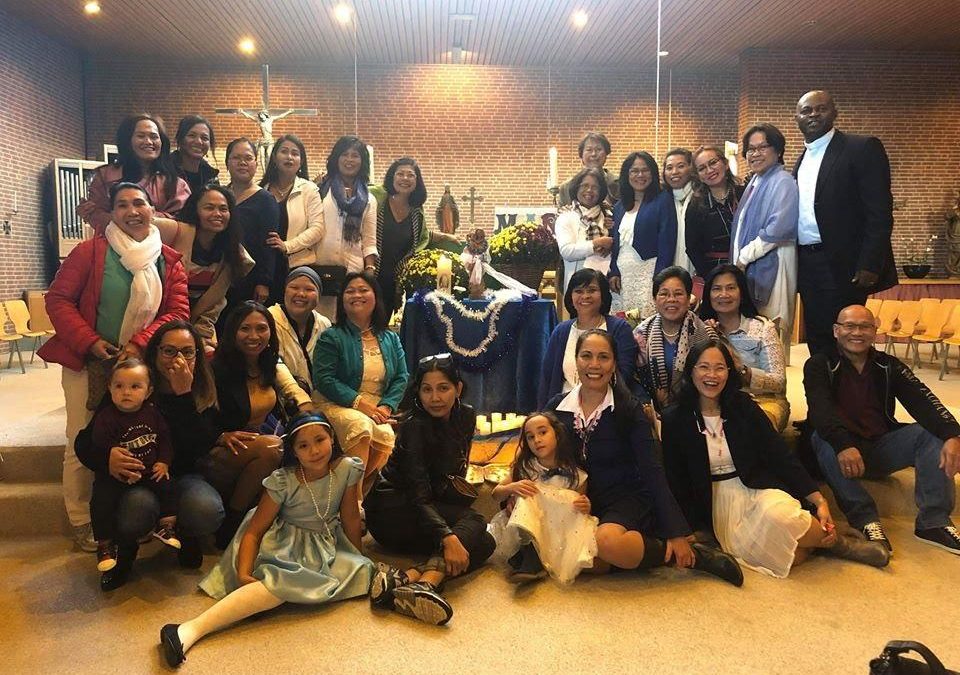
The devotion to the Blessed Virgin Mary is an important event in the life of the Filipino Catholics. Besides the ‘Flores de Mayo’ celebrated in the month of May during which beautiful flowers are offered to the Blessed Virgin Mary in a colourful ceremony, the month of October is another period when the Marian feast takes a prominent stage. Our Lady of the Rosary was, therefore, celebrated by the Filipino Catholic Community of Gouda on the 4th Sunday of the October, on which they regularly have their monthly community Eucharistic celebration in English language garnished with Filipino songs.
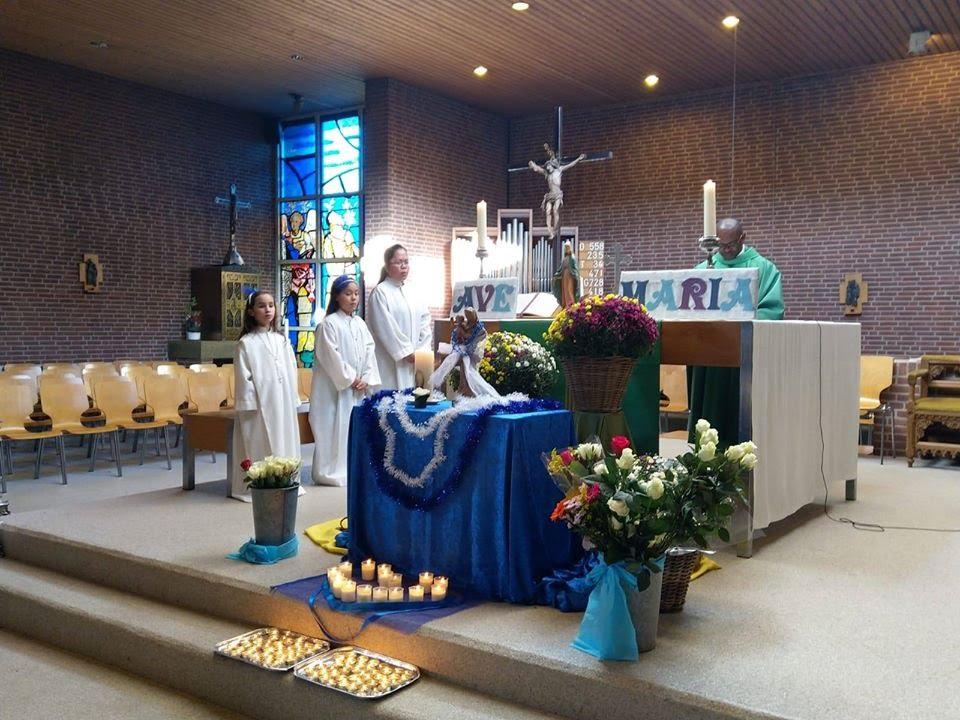
This year’s Living Rosary was a special one. Clothed in beautiful blue dresses signifying the mantle of our Lady of the Rosary, the entire community made a solemn procession, led by well decorated children, starting from the outside the church. Singing Maria hymns, the children lifted ‘Ave Maria’ plaques while the others, holding lighted candles marched solemnly into the Church. Words of welcome, a short and meditative reflection by the leader of the FCC Gouda, Amor who introduced the program, followed by the recitation of the rosary. Each part of the rosary was preceded by a reflection emanating either from the bible, Marian teachings of the church or devotional reflection as already chronicled in the booklet for the ‘Living Rosary’.
Two of the members of the FCC community who had undergone serious medical situations in the recent past recounted their experiences in a testimony to show how God, in the midst of their difficulty, was the source of their strength. Having battled with a terrible sort of cancer, Kathy Grimme was pleased to recount how remaining positive and believing in the strength from within (God) has kept her going.
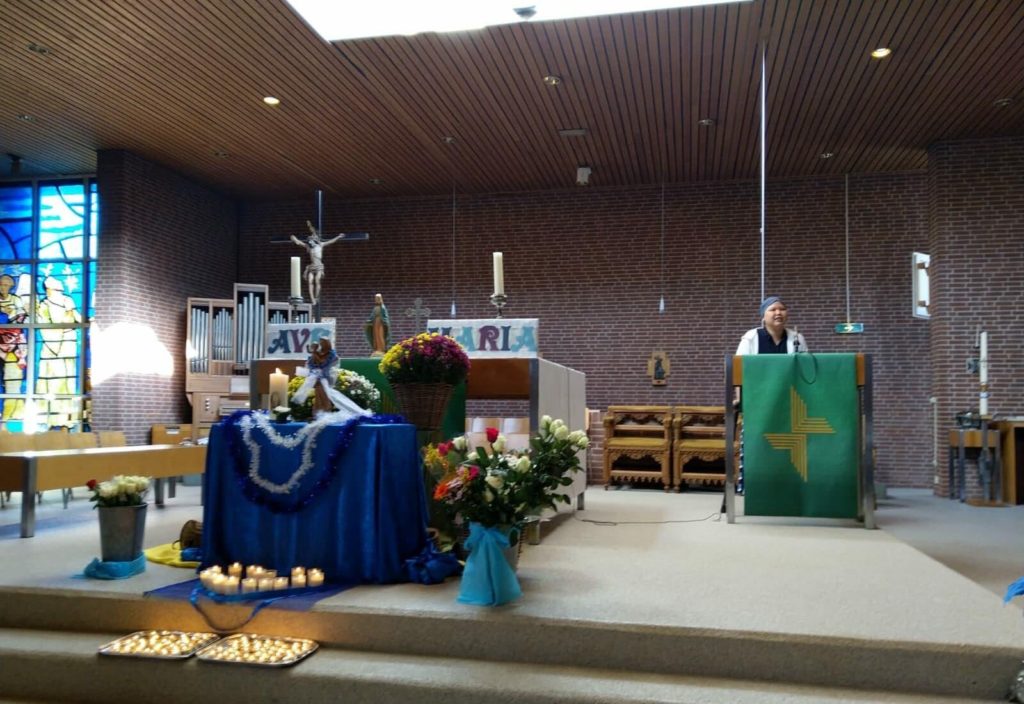
In the same line, Mary Lynn who was involved in a road accident that nearly cost her her life radiated with joy as she led the community through the painful period where it became clear to her that only by the grace of God is she alive today. Their testimonies were touching. More important was the fact that the community maintained a close relationship with both persons in their times of suffering through visits, prayers and other helpful ways. The compassion and faithfulness of the FCC community to its members during their trying times is underlined as a very important binding factor and a sign of a living Christian community.
Fr. Marcel Uzoigwe encouraged the community to continue to be the sacrament of God’s presence among his people in their difficult times. Moreover, he noted the strengthening power of testimonies in reinforcing the faith of the people and encouraging them to do more, noting that our present world needs love and show of concern more than anything else. Indeed God is love (1 John 7-12).
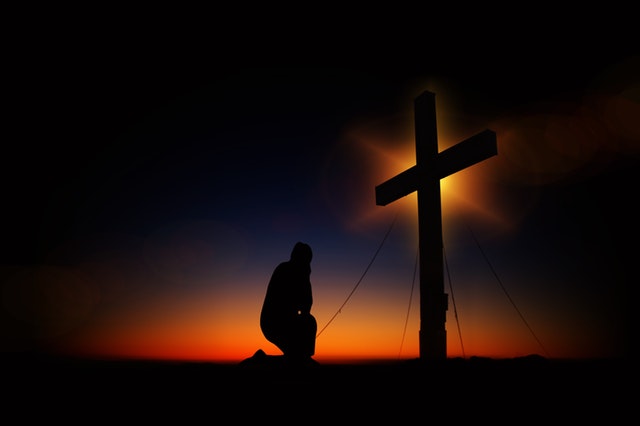
By Fr. Marcel Uzoigwe, CSSp.
“He has put down the mighty from their thrones, And exalted the lowly.” ~ Luke 1:52
(Readings: Sir.35:12-14,16-19, Ps.34, 2Tim.4:6-8,16-18 & Lk.18:9-14)
As the liturgical year gradually draws to a close, the readings call our attention to the fact that our life here on earth has an end. Thus, the readings we will be having in the Sundays before Advent center on the need to strengthen our spiritual life, pointing out some important factors that may constitute obstacle to our relationship with God and our neighbor. Last Sunday the Church calls us to reflect on the importance of Prayer and the need to pray continually and not to lose heart. And on this Sunday, still on his discourse on Prayer, Jesus goes further to narrate a parable about some people who are fully convinced of their own righteousness while despising others as less righteous. The parable illustrates the place of humility in our prayer life and relationships. We therefore, pray today, that, God may bestow on us the grace of genuine humility of heart which is necessary to please God.
The Pharisee in this parable sees his own righteousness and he speaks about it in his prayer. He takes full credit for his model of life. In his pride and self-assuming, the Pharisee exonerates himself that he is not like the rest of other sinful men, and more importantly, he is not like the Publican to whom he points his hands with condemnation. His boastful prayer was centered on his good religious practices rather than on God’s goodness, grace, and pardon. Hence, he enumerates his virtues and his religious deeds. In fact, he supposedly demands that God should give him a certificate of good performance, since he is not like the rest of other sinful men.
It is possible that we sometimes erroneously behave like this self-righteous Pharisee. We consider ourselves better than others by comparing our strong points with their weak points, thus deceiving ourselves that we are the best. We might let our imaginations engage in the unfortunate practice to self-exaltation, attributing all kinds of virtues to ourselves. We might want to project the good we do as against the evil done by the other, thinking that by so doing we would be considered better persons than others.
The Publican, on the other hand, in sincere humility, recognizes his sinfulness before God and beats his chest in sorrow, pleading for forgiveness; ‘Mea culpa, Mea culpa’. And, as Jesus says, the Publican goes home reconciled with God while the self-righteous Pharisee left the temple with his ego and the prayer he said to himself. Why? Because, ‘God’s eyes are always drawn to the man of humbled and contrite spirit, who trembles at God’s word, Is.66:2.
The Gospel story is a warning that judging and despising one’s neighbour closes the door to God’s heart. Expressing disdain and contempt for others is more than being mean and proud. It springs from the assumption that one is qualified to sit in the seat of judgment and to publicly shame those who do not conform to one’s standards and religious practices. Certainly God doe not listen to anyone who boasts in his or her goodness as if he or she achieved it without God’s grace, worse still if the person goes on to despise others in condemnation. Do you recognize God’s goodness to you? Do you humbly seek His mercy and do you show mercy to others, especially to those you find difficult to love and to forgive? Are you involved in destructive and demeaning gossips? Remember: God dwells with the humble of heart who recognize their own sinfulness and acknowledges God’s mercy and saving grace (cf. Isaiah 57:15).
Whenever we gather before the Lord in worship and prayer, two groups of people certainly gather; the Pharisee type and the Publican. The Pharisee type are those of us who see the worst in others. They judge and condemn others in their hearts, while presumptuously think that they are better off and God’s No 1. They may not be fully aware that such presumptuous pride not only hardens their hearts all the more towards repentance but also blocks the effectiveness of their prayer before the Lord. The Publican type, on the other hand, are those who are sincerely humble and contrite in heart to see the areas of their sinfulness and limitations and then plead God for forgiveness and mercy. Such people improve everyday in their walk with the Lord because they realize that there is work to be done. Hence, they often grow in their knowledge of God through constant reading of the bible, intense and consistent prayer life, and practice of virtue. When there is a misunderstanding, they do not immediately blame others, but first seek to find out if they have in any way contributed to the problem. They are also quick to forgive because, having experienced forgiveness, they understand the pain of guilt and the joy of forgiveness.
This parable and the first reading present both an opportunity and a warning. Pride leads to self-deception and spiritual blindness. True humility helps us to see ourselves as we really are in God’s eyes. Such realization of our true worth obliges us to seek God’s mercy and forgiveness. Indeed, as the book of Sirach tells us today in the first reading, “he who serves God willingly is heard; his petition reaches the heaven. The prayer of the lowly pierces the clouds. It does not rest till it reaches its goal, nor withdraws till the Most High responds.” Building a community where everyone feels loved demands that we avoid the Pharisee mentality and be of service to one another. Our strengths, gifts and talents are gifts from the Lord meant for service to others.
Let us therefore heed the admonition of St. Paul in Romans 15:1-3, ‘We who are strong ought to bear with the failings of the weak and not to please ourselves. Each of us should please our neighbors for their good, to build them up. For even Christ did not please himself but, as it is written: “The insults of those who insult you have fallen on me.”
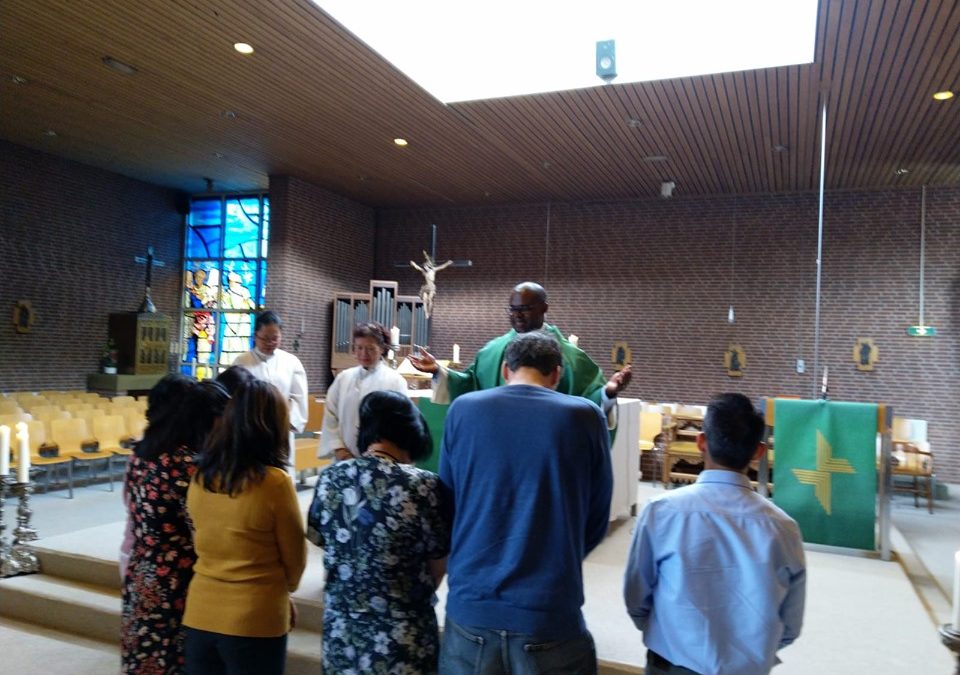
Fr. Marcel Uzoigwe, CSSp. 22-09-2019
The readings of today, especially the first reading and the gospel, deal with the issue of acquisition of wealth and its uses. Prophet Amos is known for his crusade for social justice. He stood against the oppression of the poor by the rich during his days. That oppression marks the relationship between persons, groups and even nations of unequal powers is evident even in our days. Take any century of your choice and analyze social relations in any given society in it or among the nations. You will see clear traces of the weak being subjected to the strong.
Prophet Amos’ struggle against the oppression of the poor in his days foreshadows the opening sermon of Jesus on the mountain called the Beatitudes (Mtt. 5:3-12). Jesus made a counter-cultural statement about the value system of his time: ‘blessed are the poor in Spirit, to them belongs the kingdom of God’. Further in his preaching, Jesus would regularly remind his audience of the uselessness of trusting in wealth. In the parable of the rich fool (Lk. 12: 13-21) Jesus ended by saying “This is how it will be with whoever stores up things for themselves but is not rich toward God.”
Money and what money can buy seems to top the criteria in determining human success in most societies. Your talents, career, ideas and whatever you have are often judged with regard to their financial values. That is why you see parents making all the efforts to ensure that their children get every opportunity to develop those talents that are financially rewarding in the hope that something clicks someday. Almost every child now is engaged in sport or music, even on Sundays; something that was not the case a few years ago.
Wealth, in itself, is not bad. There is fundamental difference between wealth/money and love of wealth/money. Genuinely acquired wealth is a gift from the Lord, and its proper use for the good of humanity is a sign of blessedness. The love of wealth/money is often evident in the manner of its acquisition and dispensation. With love of wealth/money, people can do anything to acquire wealth and to guard it for themselves alone. 1 Timothy 6:10 “For the love of money is the root of all kinds of evil. And some people, craving money, have wandered from the true faith and pierced themselves with many sorrows”. Like the prophet Amos emphasized, any acquisition of wealth at the expenses of someone else is an atrocity before God. It is a dehumanization of the image of God in which men and women are created. Think of the various things people do to make money and how that affects the society: human trafficking, crimes, forced labor, illegal trades in weapons and raw materials that lead to wars and impoverishing of developing nations, etc. Ecclesiastes 5:10 “ If you love money, you will never be satisfied; if you long to be rich, you will never get all you want. It is useless”. When Amos berates the people for trampling upon the needy and bringing the poor of the land to an end, he is speaking of a reality that still faces us today.
The gospel presents another dimension on the question of wealth in the parable of the astute steward. He was wasteful of his master’s wealth. Yet all through the time the steward was in the service of his master, it never crossed his mind that the wealth he was handling could be taken away from him at any point, at least not so soon. He made no reservations or savings for such eventuality. When he was eventually asked to prepare a handover note, he went for a quick fix that will earn him a future. That was a last minute effort. There is something about last-minute fixtures. You risk losing more than you gain. In the case of the astute steward, he never minded because the goods he was giving away were actually not his own. All he cared for was to ensure that he didn’t end up on the streets.
The steward is both dishonest and smart. In the parable, the master praised the astuteness of the steward but not his dishonesty. There is something interesting that Jesus uses this parable to teach. Note that the steward could have decided to steal his master’s goods instead of making a deal with his debtors. That he could make such a deal indicates that his master does not know the quantity of goods that he has. He rather chose the second option because he wanted to secure what he considered lasting relationship rather than quick money. And Jesus added, “I tell you, use worldly wealth to gain friends for yourselves, so that when it is gone, you will be welcomed into eternal dwellings” (Lk. 16:9).
Everything we have could be considered as the wealth we possess: our talents, time and treasure. They are wonderful to behold and to enjoy, but they will certainly fail some day. However, the use we make of them could be an investment for the future or a wasteful use that has no reward. It is quite encouraging to note that a good number of us devote time and energy to visit the Detention Camp and are involved in various humanitarian works. Others support various community projects, including those of this community. Nevertheless, the gospel challenges each and everyone of us to re-examine our commitment to use worldly wealth to gain eternal friendship with God for ourselves.
In Matthew 25: 31-46 Jesus gives a picture of what the last judgement will look like. Those admitted to the Father’s joy are those to whom the Kind would say, “I was hungry and you gave me food, I was thirsty and you gave me drink, I was a stranger and you welcomed me, I was naked and you clothed me, I was sick and you visited me, I was in prison and you came to me’ (Mt. 25: 35-36), and “Truly, I say to you, as you did it to one of the least of these my brothers, you did it to me”(Mt. 25: 46). We don’t need to wait for a last minute quick fix like the steward in the parable. We can make hay while the sun shines.
While the world occupies itself with wealth creation and craze for riches, it is important to pay attention to the process of wealth acquisition and its use. God who made us in his image prize our being higher that any other material riches. We are beings in transit with an eternal destination. Lets not forget the words of our creator in Genesis 1:26 “And God said, Let us make man in our image, after our likeness: and let them have dominion over the fish of the sea, and over the fowl of the air, and over the cattle, and over all the earth, and over every creeping thing that creeps upon the earth.” We are meant to rule over created things, to care for the earth and not to be dominated and controlled by created things. Ours is to use the wealth in our possession to serve God in creation and thus win for ourselves an eternal friendship with God.